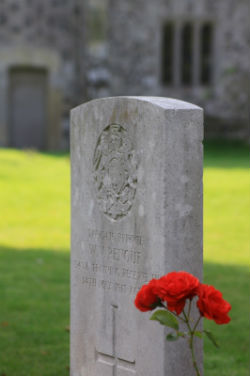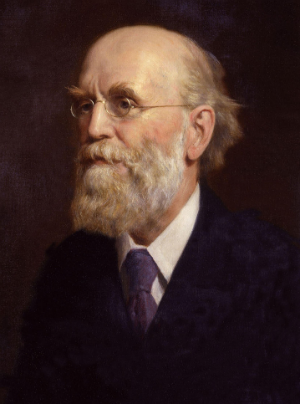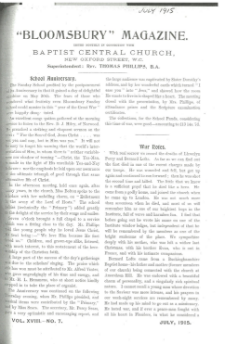A hundred years ago this August the world sunk into the dark trauma of the First World War, a conflict so costly and all-consuming that no-one could be left untouched by its shadow. Millions of lives were cut short, and millions more scarred by the experience of battle.
So inevitably, through this summer and beyond, there shall be all manner of commemorations - celebrations even - as the centenary is marked.
 |
In Memoriam/freedigitalphotos.net
|
It will be easy to be cynical. There shall be televised ceremonies to The Glorious Dead, full of politicians looking sombre and serious; numerous books, newspaper articles and television programmes poring over the details of each battle, and debating the old controversies; and of course there will be poppies, lots and lots of poppies.
This kind of commemoration, in large part, is about statehood and national memory, and as good Baptists we like to maintain a critical distance from the power of state. The centenary could, if we are not careful, begin to look like a bit of a circus, and we must ask ourselves what it is that we are remembering, now that the war is beyond living memory.
Accepting that the sacrifice of the war dead should be honoured, as it is every Remembrance Sunday, we can still ask what relevance the First World War might have to our lives today.
One of the reasons that the First World War still exercises such an emotional pull is that it is in extreme circumstances that people learn of what stuff they are truly made. In studying this conflict, the first on such a scale, and finding out how our predecessors responded to the challenge that the war presented, we can perhaps find out something about ourselves.
The outbreak of the First World War shattered hopes for peace, of Baptist and many others, which had been maintained and nurtured even as the storms of war gathered off shore. Baptists were, at least so far as articulated public opinion indicates, anti-militarist, and strongly internationalist, as many of us are today. They had worked passionately for greater understanding among nations, and had particularly rejoiced in their strong fraternal association with churches of Germany.
The first European Baptist Congress took place in Berlin in 1908, and was a great success. I cannot imagine that it would have been much different to the Baptist conferences of today. An entire session was devoted to ‘Baptists and International Peace.’ This meeting in Germany heralded further Anglo-German Church meetings which developing similar themes.

On 3 August 1914, John Clifford (pictured), a prominent Baptist who had attended the Congress in Berlin and preached for international harmony, was in Konstanz, Germany. There he was a key delegate at an Anglo-German Peace Conference, which had been scheduled with unfortunate irony. As he and the other delegates were assembling to work for peace, the forces of the Great Powers were mobilising for battle. War was declared the following day.
Clifford, who had vehemently opposed the Boer War, might have been expected to take a stand against this war also. He returned to London intending to do so, but the circumstances of the outbreak of war, and especially
Germany's violation of Belgium's sovereignty, changed his mind; and he gave the war his support, believing it to be a fight for morality and the progress of humanity.
Clifford's journey was representative of the swift and sudden swing in Baptist opinion, which the outbreak of the war and in particularly Belgium’s suffering, brought about. There was a sense of shock, a feeling of helplessness, at the occurrence of the impossible possibility: total European war. Assumptions had been challenged. Then as the reality sank in, many a young Baptist enlisted, and pride stirred in the communities of many a previously peace-loving Baptist Church as they watched them march away.
It seems to me however, that some saw wider opportunities for the work of the church amid the clamour, even as the old certainties crumbled. Contemporary editions of the
Bloomsbury Central Baptist Magazine reveal the story of one young Baptist member who signed up in the hour of crisis and in due course made the ultimate sacrifice. Bernard Lofts was endowed with "a beautiful charm of personality", reports the magazine. "He hated war, and if ever a peace-man fought with all his heart in Flanders, in what he considered a righteous war, it was Bernard."

The magazine then published his last letter home from the ranks.
"It is an opportunity for a Christian that seldom comes. We are placed among fellows among whom we never otherwise move as equals.... My personal aim has been to endeavour without much talk or forcing, to quietly, without fear, live consistently in the presence {of my fellow soldiers], and the response has been truly wonderful, proving that 'Down in the human heart, crushed by the tempter, Feelings lie buried which grace can restore.'
Of course this must hinder whatever purpose I may have found in the mission field, to what extent I cannot say; it is a time for an absolute dependence upon God. But whatever is involved, ambitions frustrated - hopes disappointed - plans upset - the future uncertain - whatever comes, all is compensated in the consciousness that Duty is done"
Throughout the centenary period, church members might, while honouring the sacrifice of those who gave their lives, recall the experience of their predecessors who saw their world crumbling about them.
And as it finds examples of individuals such as Bernard Lofts, who found amid the horror opportunities for Christian service, they might reflect on how to do the same today.